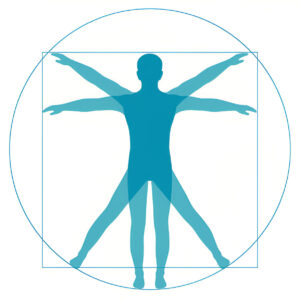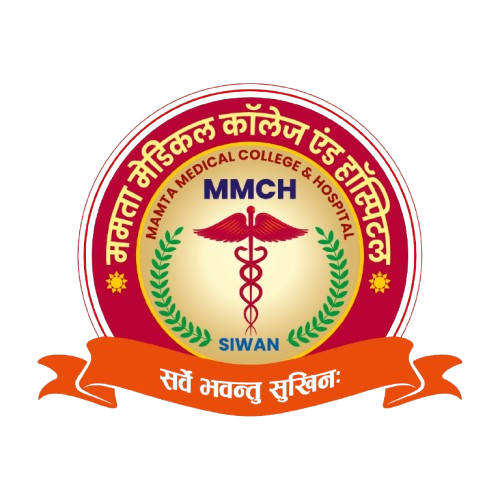
🫀 Department of Physiology
Mamta Medical College & Hospital, Siwan
The Department of Physiology at Mamta Medical College & Hospital, Siwan plays a vital role in shaping the medical minds of tomorrow. As one of the foundational pre-clinical departments, it provides students with a thorough understanding of the normal functioning of the human body, serving as a bridge between basic sciences and clinical medicine.
Through advanced laboratory facilities, experienced faculty, and an interactive, competency-based curriculum, the department aims to instill a strong scientific understanding of physiological mechanisms, equipping students for success in medical and allied health fields.
🧬 What is Physiology? Why Is It Important in Medicine?
Physiology is the branch of medical science that deals with the study of the functions of the human body—from the cellular level to complete organ systems. A sound understanding of physiology is crucial for recognizing the onset of disease and implementing effective treatments.
At Mamta Medical College, physiology is taught with a clinical perspective, emphasizing how physiological principles apply in real-world medical scenarios. This approach helps students understand not just how the body works, but why certain symptoms arise in disease states.
🏥 Infrastructure & Facilities
The Department of Physiology boasts modern infrastructure designed to deliver both theoretical knowledge and practical skills:
🧪 Haematology Laboratory
Equipped with microscopes, centrifuges, hemocytometers, and colorimeters
Enables practical understanding of blood cell counting, hemoglobin estimation, ESR, blood grouping, etc.
Hands-on training for MBBS students under close supervision
🩺 Clinical Physiology Lab
Functional tools for recording blood pressure, ECG, reflexes, spirometry, and other vital signs
Teaches students basic clinical examination skills essential for patient care
Prepares students for future interactions with real patients
🧠 Human Physiology Laboratory
Simulators and diagnostic equipment for cardiovascular, respiratory, and nervous system studies
Helps students correlate physiological functions with normal and pathological states
📈 Amphibian and Mammalian Lab (for demonstration purposes)
Includes experimental setups for understanding nerve-muscle physiology, reflexes, and action potentials
Ethical simulation models are used as per NMC guidelines for demonstrative teaching
🖥️ Smart Lecture Theatres and AV Demonstration Rooms
Digitally equipped with projectors, whiteboards, and video-based learning
Interactive tools such as animations, quizzes, and clinical case scenarios used to enhance student understanding
📘 Academic Curriculum & Syllabus
The Physiology curriculum follows the National Medical Commission (NMC) guidelines and is aligned with the Competency-Based Medical Education (CBME) format.
🧠 Topics Covered:
General Physiology
Blood and Body Fluids
Nerve and Muscle Physiology
Cardiovascular System
Respiratory Physiology
Gastrointestinal Physiology
Renal and Excretory System
Endocrine and Reproductive Physiology
Central Nervous System and Special Senses
Environmental and Exercise Physiology
Clinical and Applied Physiology
🎯 Key Learning Approaches:
Didactic lectures with visual aids
Practical laboratory sessions with hands-on experiments
Small group discussions, tutorials, and MCQ-based assessments
Clinical correlation classes using real-life case studies
Integrated teaching with anatomy, biochemistry, and clinical departments
👨🏫 Experienced and Dedicated Faculty
Our department is led by qualified physiologists, each committed to high-quality teaching, research, and mentoring. Every student is assigned a mentor for academic and personal guidance.
Faculty members regularly update their knowledge by participating in national conferences, CMEs (Continuing Medical Education), and medical education technology workshops.
They also organize seminars, interdepartmental quizzes, and student feedback sessions to constantly improve the quality of teaching and learning.
🔬 Research & Innovation
The Department of Physiology at MMCH encourages students and faculty to engage in innovative research projects and publish their work in reputable national and international journals. Areas of interest include:
Exercise Physiology
Cardiovascular response to stress
Autonomic Nervous System Studies
Sleep Physiology and Cognitive Functions
Lung Function in Smokers and Non-Smokers
Hemodynamic responses in medical students
Final-year students are encouraged to present their research at IAPSM, APPICON, and other prestigious platforms to gain exposure and recognition.
🧑⚕️ Clinical Relevance and Integration
In alignment with the CBME approach, the physiology department works closely with clinical departments like medicine, surgery, pediatrics, and pharmacology to offer integrated learning.
Example:
While studying the cardiovascular system, students also learn about blood pressure recording, heart sounds, ECG interpretation, and common clinical scenarios like hypertension and arrhythmias.
This prepares students to think clinically from the first year itself, improving retention and application of knowledge during their clinical postings.
🌐 Future Vision and Goals
The Department of Physiology aims to:
Integrate simulation-based learning and virtual labs
Develop a Centre for Research in Human Physiology
Launch skill-based workshops for advanced diagnostics and instrumentation
Offer online courses and MOOCs for wider outreach
Host regional conferences and CME programs in physiology
With a focus on both academics and innovation, our department is constantly evolving to match global standards in medical education.
🏅 Why Choose Mamta Medical College for Physiology?
NMC-compliant labs and teaching facilities
Highly qualified, approachable faculty
Strong focus on clinical correlation and practical learning
Regular assessments and feedback mechanisms
Student-friendly, integrated teaching environment
Active encouragement of research, creativity, and collaboration
